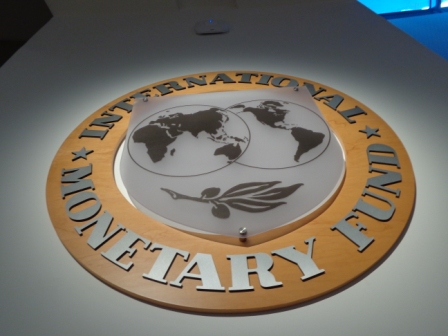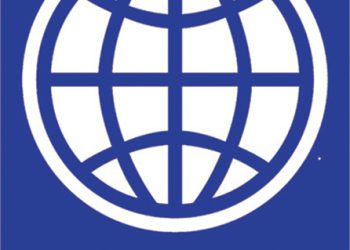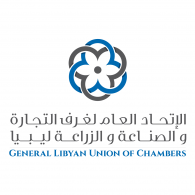In its Staff Concluding Statement of the 2025 Article IV Mission to Libya released yesterday, the IMF said:
- The dispute over the leadership of the central bank last August and the associated disruption in oil production weighed on growth in 2024. Output is estimated to have contracted, driven by the forced contraction in hydrocarbon GDP, but offset somewhat by the expansion in non-oil activities fueled by sustained government spending. Following the resolution of the dispute, oil production has rebounded and is now approaching 1.4 million barrels per day.
- – Official inflation stood at close to 2 percent in 2024, reflecting extensive subsidies and affected by measurement issues. Subsidized goods and services account for around one-third of the consumer price index (CPI). The CPI was based on an outdated consumption basket that covered only Tripoli, likely leading to the inaccurate estimation of inflation, given the significant variation in prices across different regions in Libya. The Bureau of Statistics and Census (BSC) has now introduced a revamped CPI with an expanded geographical coverage and updated weights.
- – Preliminary estimates point to fiscal and current account deficits in 2024. Government spending continued to rise amid declining oil revenues due to the shutdown of oil production and exports. The current account balance is estimated to have turned from a large surplus in 2023 to a deficit in 2024 due to the reduction in hydrocarbon exports, whereas imports remained broadly unchanged. Reserves remained at a comfortable level, bolstered by the revaluation of the CBL’s gold holdings.
- – The banking sector has successfully increased capital and enhanced its financial soundness metrics. In late 2022, the CBL instructed banks to increase their capital to meet Basel II regulatory requirements, and the majority of banks have already met their targets in 2024, resulting in a doubling of paid-in capital. Additionally, banks’ financial soundness indicators have strengthened, with significant improvements in nonperforming loan ratios. Private sector credit growth remained strong in 2024, primarily in the form of Murabaha financing to retail customers and salary advances to public employees, whereas corporate financing was limited.
- – The economic outlook is dominated by developments in the oil sector. Real GDP growth is projected to rebound in 2025, primarily driven by an expansion of oil production, before moderating in the medium term. Non-hydrocarbon growth is set to remain around its 2021-2024 average (5-6 percent) throughout the forecast horizon, supported by sustained government spending. The current account and fiscal balances are slated to remain under pressure over the medium term, driven by projected lower oil prices and continued demands for the government to spend its entire revenues. The outlook is subject to elevated uncertainty and risks are tilted to the downside, particularly from domestic political instability, oil price volatility, intensifying regional conflicts, and deepening geo-economic fragmentation.
- – Pursuing efforts to establish a unified budget should remain a key objective. This will help identify priority spending and enhance fiscal credibility. In the meantime, the authorities should resist the pressure to increase current spending, particularly on salaries and subsidies, while also building capacity for more effective public financial management, including by strengthening the Macroeconomic Unit within the Ministry of Finance. In the medium term, substantial fiscal efforts will be needed to preserve sustainability and achieve intergenerational equity, including by introducing well-calibrated and orderly wage and energy subsidy reforms and mobilizing nonhydrocarbon revenues.
- – The CBL devalued the dinar by about 13 percent in early April and further tightened foreign exchange restrictions to alleviate pressures on reserves. In the absence of conventional monetary policy tools, controlling fiscal expenditure remains the preferred policy response consistent with Libya’s macroeconomic framework (see IMF Country Report No. 24/206). However, given Libya’s political instability and institutional fragmentation, addressing expenditure pressures may not be feasible in the short term. The authorities should reduce the gap between the official and the parallel exchange rates, including by phasing out the foreign exchange tax and easing foreign currency restrictions, while protecting international reserves.
- – The CBL needs to develop an effective domestic monetary policy framework with a well-defined policy rate to serve as a reference for banks in Libya. Such a framework would allow it to react to changing macroeconomic conditions, alleviate the recurring depreciation pressures on the Libyan dinar, and provide a benchmark for the pricing of credit by banks and other financial institutions.The CBL’s recent efforts to inject new banknotes, promote electronic payments, and accelerate financial inclusion are welcome. Yet, more needs to be done to tackle the issue of cash hoarding and restore confidence in the financial sectors. Improving transparency, accountability and financial literacy, while also developing attractive savings plans would be key and foster credit provision to the private sector. The authorities should continue enhancing the anti-money laundering and combating the financing of terrorism (AML/CFT) framework to support the stability of correspondent banking relationships and economic stability more broadly. The legal framework should be aligned with international standards, and AML/CFT mitigation should be properly coordinated and risk-focused.
- – To foster economic diversification in Libya, it is critical to address the challenges facing the private sector. The level of informality remains high, given the ongoing political uncertainty and weakness of the regulatory framework for businesses. The lack of access to finance and foreign currency, dominance of public employment, and poor governance are major impediments to growth in Libya. Banks continue to lack a well-defined framework for extending credit since the issuance of the law banning interest. The authorities should initiate a comprehensive economic reform plan that focuses on private sector development, starting with upgrading regulatory frameworks, enhancing access to finance, and improving the security situation.
- – Governance reforms will be key to support sustainable growth. Positive steps by the CBL taken to improve banks’ governance frameworks are welcome. Additionally, measures taken to confront corruption, such as the publication of annual reports of the Libyan Audit Bureau, and the adoption of a country anticorruption strategy are noteworthy. However, significant macro-critical governance vulnerabilities linked to the administration of state-owned enterprises, public spending, the rule of law, and the overall fragility of the country remain. Addressing them in a timely manner will support the creation of a better business environment and a more active private sector.
- The next Article IV mission is expected in the Spring of 2026.The IMF mission thanked the Libyan authorities and other counterparts for the constructive policy dialogue and productive collaboration, and acknowledged the continued improvements in data collection, sharing and transparency.








